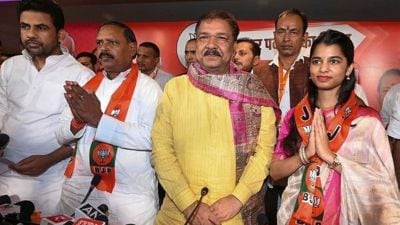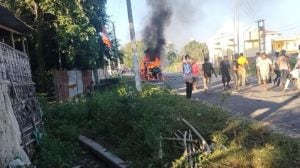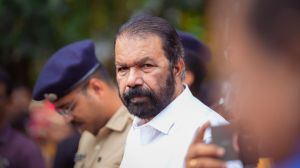Welcome, say Delhi and Washington
With the train to Pakistan cleared for January 15 and a strong endorsement of Pak President General Musharraf’s apparent rethink on the...

With the train to Pakistan cleared for January 15 and a strong endorsement of Pak President General Musharraf’s apparent rethink on the UN resolutions—from New Delhi to Washington—the road to Saarc got a lot less bumpy today.
In India’s first official reaction to Musharraf’s statement yesterday to Reuters that Islamabad had ‘‘now left (the UN resolutions calling for a plebiscite) aside’’ and was willing to meet New Delhi ‘‘halfway,’’ External Affairs Minister Yashwant Sinha said: ‘‘It is Pakistan which has always insisted on the centrality of the issue so any change towards flexibility is welcomed by India.’’ Sinha was speaking after the Cabinet Committee on Security (CCS) met for two hours to review the ground situation in Jammu and Kashmir.
Pushing the process forward was a strong endorsement from Washington, too. ‘‘We think it is constructive to relinquish the demand for a referendum on the status of Kashmir,’’ said State Department spokesman Richard Boucher.
‘‘We believe that engagement and confidence-building measures such as those recently adopted by both sides move India and Pakistan towards establishing more normal relations and build a momentum for peace,’’ he said. Boucher said Washington was also looking forward to progress at the Saarc summit next month.
Meanwhile, back in Pakistan, Musharraf’s remark has predictably riled many prompting officials to quickly calm the ripple. A close aide to the General told Reuters today that the offer was consistent with the President’s previous policy statements. ‘‘It is his consistent statement that for resolution of an issue, we have to move away from our stated positions.’’The aide explained that moving away from Pakistan’s ‘‘stated position’’ clearly meant dropping the demand for a referendum, so Musharraf was merely spelling out an offer he had made before.
Information Minister Sheikh Rashid Ahmed said Pakistan still supported the idea of a plebiscite but would discuss alternative proposals at any talks with India on Kashmir.
For his part, Foreign Minister Khursheed Mehmood Kasuri told the official APP news agency that Musharraf’s remark ‘‘does not mean that Pakistan has unilaterally dropped its demand based on UN resolutions.’’
While some hardline groups, like the Jamiat-ul-Mujahideen, ridiculed Musharraf’s statement, Syed Salahuddin, leader of the largest Kashmiri militant group, Hizbul Mujahideen, was positive: ‘‘Pakistan’s offer…is major progress provided India shows flexibility and gives up its intransigence.’’
Besides Pakistan, the CCS discussed the ongoing crackdown in Bhutan as well and expressed its gratitude to the Royal Bhutanese Army. On the question of Indian troops taking part in the operations, Sinha said: ‘‘No request has been made and I do not think that situation has arisen so far.’’ He promised full moral and material support to Bhutan in their action against Indian insurgents.
The meeting was attended, among others, by Deputy Prime Minister L K Advani, Finance Minister Jaswant Singh, National Security Advisor Brajesh Mishra, Intelligence Bureau chief K P Singh and Army Chief Gen N C Vij.





- 01
- 02
- 03
- 04
- 05


























